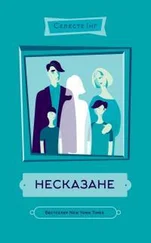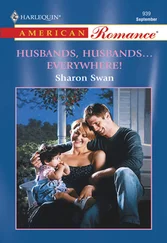Mark and Linda McCullough, it was quite clear, had all the necessary resources for raising a child. Mr. McCullough had a steady, well-paying job; Mrs. McCullough had, for the past fourteen months, been a full-time mother to the baby and planned to be so indefinitely. They owned their own home in a safe, affluent neighborhood. Overall they were in the ninety-sixth percentile financially. While in their care, the baby had been well clothed, well fed, and well cared for. She had had regular medical checkups, plenty of socialization, and plenty of enrichment: library storytime, infant swim, mommy-and-me music classes. The McCullough home had been rigorously checked and certified as lead free.
Furthermore, the McCulloughs had shown themselves to be exceptionally devoted to raising a child. Records showed that they had tried to conceive children of their own for ten years, and had been waiting to adopt for another four. They had sought the advice of every medical expert in the greater Cleveland area—including the best fertility doctors at the Cleveland Clinic—and then engaged the most reputable adoption agency in the state. Did this not suggest that they would give the baby the most loving possible care, along with every opportunity?
(But the baby already had a mother. Whose blood flowed in her veins. Who had carried her in her womb for months, who had felt her kicking and flipping within, who had labored for twenty-one hours as she made her way faceup and screaming into the bright light of the delivery room, who had burst into ecstatic tears at hearing her child’s voice for the first time, who had—even before the nurses had wiped the baby clean, even before they had cut the cord—touched every part of her child, her tiny flaring nostrils and the faint shadows of her eyebrows and the womb-slicked soles of her feet, making certain she was wholly present, learning her by heart.)
Should custody be returned to Bebe, she would, of course, be raising her child as a single, working mother. Who would care for her child while she was at work? Would not the child be better off in a home with two parents—one of whom did not work and would be home raising her full time—rather than in a day care for the majority of the day? And would not the child be better off in a home with a mother and a father, studies showing the importance of a strong male figure in a child’s life?
(It came, over and over, down to this: What made someone a mother ? Was it biology alone, or was it love?)
Back in the courtroom, Mr. Richardson was grateful that no one heard the last day, when Mrs. McCullough had been called to speak. She had come to the front—in family court, there was no witness box, just a chair, set to the side of the judge—and sat down, and he could see how nervous she was by the way she crossed and uncrossed her ankles, by the way she could not decide where to place her hands, on the arms of the chair or in the soft hammock of her skirt. It had not struck him before that the witness box in court, for all its formality and imposingness, hid you from the waist down: that at least the world would not see your feet fidgeting, that as much as you might be judged, at least your legs would not.
Ed Lim took his time in rising to question her. He was a tall man, especially for an Asian: six feet, lean and rangy, with the build of a basketball player—and indeed, he had played starting forward for Shaker’s varsity team back in the sixties. He and Mrs. McCullough had been only three years apart at school, lifelong Shaker residents and graduates, and before this case he had remembered her only as a shy, slightly plump freshman with long golden-brown hair. He’d been one of just two Asians in his class—the other had been Susie Chang; kids had teased that they would grow up and marry each other. They hadn’t, of course; Susie had gone off to Oregon right after graduation, but in the end Ed had indeed met and married a nice Chinese girl in college, a first-generation kid like him. Mrs. McCullough, however, remembered none of this, not even Susie Chang, who’d been a cheerleader for a year alongside her.
“Now, Mrs. McCullough,” Ed Lim said, setting his pen down at his table. “You’ve spent all your life here in Shaker, is that right?”
Mrs. McCullough acknowledged that it was.
“Shaker Heights High School, class of 1971. Did you go to Shaker schools all the way up?”
“From kindergarten. At Boulevard, back when it was still K to eight. And then the high school, of course.”
“And then you attended Ohio University?”
“Yes. Class of 1975.”
“And after that you moved back to Shaker Heights. Directly?”
“Yes, I’d been offered a job here, and my husband—my fiancé at the time—and I knew we wanted to raise a family here.” She shot Mr. Richardson a quick glance at his table, and he gave her the merest nod. They’d talked about this in prep: the focus was to remind the judge, whenever possible, of how much she and Mr. McCullough wanted this baby, how family focused they were, how devoted they were to little Mirabelle.
“So you’ve really lived in Ohio your entire life.” Ed Lim seated himself on the arm of his chair. “May Ling’s parents, as we all know by now, came from Guangdong. Or perhaps you know it as Canton? Have you ever been there?”
Mrs. McCullough shifted in her seat. “Of course we plan to take Mirabelle there on a heritage trip. When she’s a bit older.”
“Do you speak Cantonese?”
Mrs. McCullough shook her head.
“Mandarin? Shanghainese? Toisan? Any dialect of Chinese?”
Mr. Richardson clicked his pen irritably. Ed Lim was just showing off now, he thought.
“Have you studied Chinese culture at all?” Ed Lim asked. “Chinese history?”
“Of course we’re going to learn all about that,” Mrs. McCullough said. “It’s very important to us that Mirabelle stay connected to her birth culture. But we think the most important thing is that she has a loving home, with two loving parents.” She glanced at Mr. Richardson again, pleased that she had managed to work this in. There are two of you, he had said; that might be a big advantage over a single mother.
“You and Mr. McCullough are clearly very loving. I don’t think anyone has any doubts about that.” Ed Lim smiled at Mrs. McCullough, and Mr. Richardson stiffened in his seat. He knew enough about lawyers to know when they were about to snap the trap shut. “Now, what exactly will you do to keep May Ling ‘connected to her birth culture,’ as you put it?”
There was a long pause.
“Maybe that’s too big of a question. Let’s back up. May Ling has been with you for fourteen months now? What have you done, in the time she’s been with you, to connect her to her Chinese culture?”
“Well.” Another pause, a very long one this time. Mr. Richardson willed Mrs. McCullough to say something, anything. “Pearl of the Orient is one of our very favorite restaurants. We try to take her there once a month. I think it’s good for her to hear some Chinese, to get it into her ears. To grow up feeling this is natural. And of course I’m sure she’ll love the food once she’s older.” Yawning silence in the courtroom. Mrs. McCullough felt the need to fill it. “Perhaps we could take a Chinese cooking class at the rec center and learn together. When she’s older.”
Ed Lim said nothing, and Mrs. McCullough prattled nervously on. “We try to be very sensitive to these issues wherever we can.” Inspiration arrived. “Like for her first birthday, we wanted to get her a teddy bear. One she could keep as an heirloom. There was a brown bear, a polar bear, and a panda, and we thought about it and decided on the panda. We thought perhaps she’d feel more of a connection to it.”
Читать дальше













